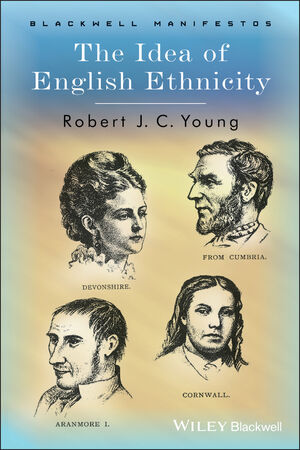The Idea of English EthnicityISBN: 978-1-4051-0129-5
Paperback
312 pages
December 2007, Wiley-Blackwell
 Other Available Formats: Hardcover
|
||||||
"For the Brontë reader, the topic of ethnicity remains an intriguing one. [With] Young's suggestion that Englishness is not about race but is a translatable quality, we can identify the sisters as English. … Young's book gives us another opportunity to consider how English the Brontë sisters really were." (Brontë Studies, November 2009)
"A well-written, superbly readable and ... well structured presentation of the concepts of English ethnicity in the 19th Century. ... A worthwhile starting point." [Translated from German] (Humanities - Sozial- Und Kulturgeschichte, May 2009)
"Robert J. C. Young's The Idea of English Ethnicity has never been more needed. In this compelling, impeccably researched, and eminently readable study, Young demonstrates that the singular and pure concept of English identity whose loss is now so widely reported never really existed in the first place. I cannot remember the last time that I read such a highly original book on what might seem like a relatively well-trammeled topic. Victorian Englishness and racial ideology have been the subject of innumerable studies over the past decades, but none that I can think of have the freshness, innovation, and authority of this book. The Idea of English Ethnicity can and should change the way we think about Englishness and Empire alike. Young's prose is as lucid and coherent as his arguments are innovative. Writing in a manner that is unfortunately all too rare in the academy these days, he announces his thesis early and signposts it frequently, deftly linking the new material to the larger systems of ideas on which the book is premised. The result is a highly intelligent book on an important subject that can be enjoyed by readers both inside and outside of the academy.” (Journal of British Studies, October 2008)
"From the vantage point of cultural studies, Young offers his interpretation of 'English ethnicity.' Young argues that a shift occurred from viewing English people as pure Saxons to Anglo-Saxons of 'mixed' blood, a definition that encompassed English speakers in the colonies and former colonies as well immigrants to England. Recommended." (Choice Reviews, December 2008)
"A contribution to the literature of the continuing English identity crisis." (Times Literary Supplement, October 2008)
"A major contribution to debates about English identity ... shows how potent the idea of Englishness is." (SirReadALot.org)
"Robert Young has written a compelling and thorough textual history of English ethnicity and its discursive relation to the history of racial theory. Comprehensive, carefully considered, and clearly written, this book sets the standard against which any future study of Englishness will be assessed. The bar has been lifted a couple of notches higher."–David Theo Goldberg, University of California
“What is Englishness?, Robert J.C. Young asks, and in
The Idea of English Ethnicity he offers an impressively
well-researched and eminently readable answer.”
–Werner Sollors, Harvard University



